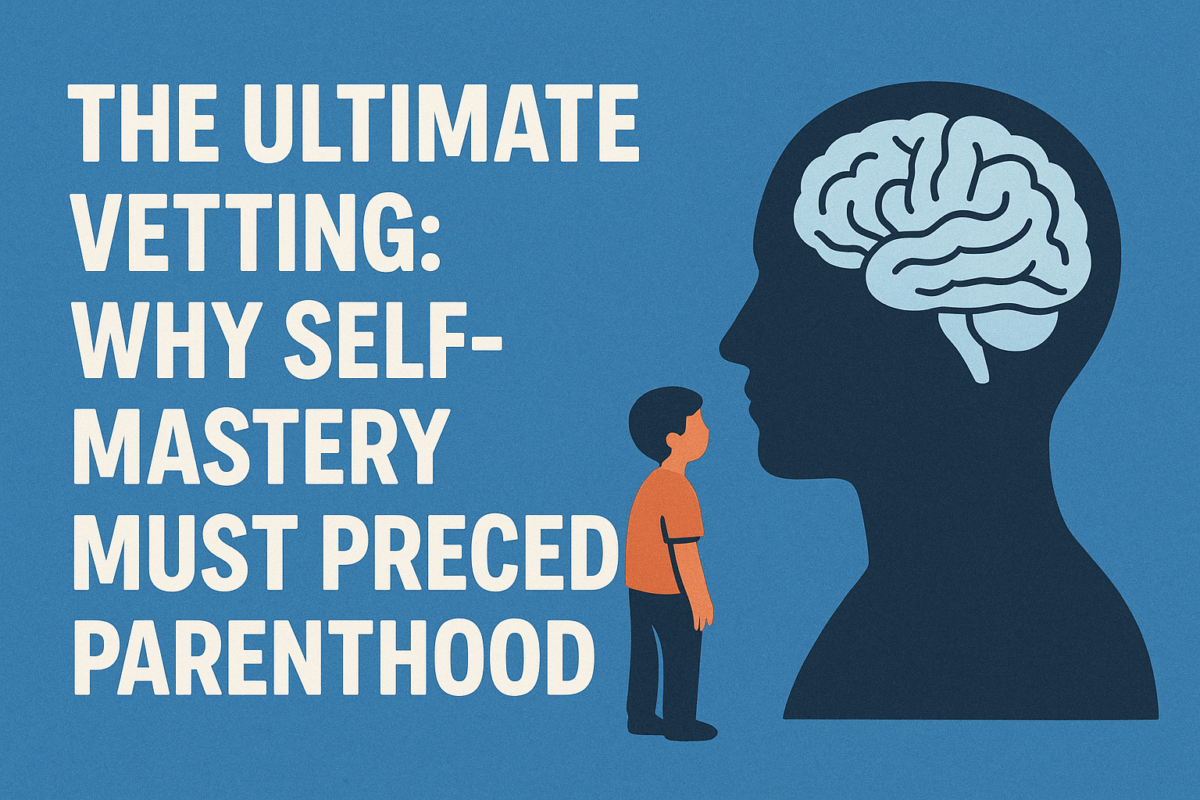The decision to become a parent is arguably the most profound and consequential choice a person can make. It is a commitment that demands not just love and financial stability, but a fundamental level of self-mastery and emotional maturity. A recent, tragic case serves as a devastating, undeniable illustration of why this self-vetting process is not optional—it is a moral imperative.The case involves Christopher Scholtes, a father charged with first-degree murder in the death of his two-year-old daughter, Parker [1]. The details of the incident are a chilling testament to the catastrophic failure of prioritizing personal vices over parental duty. On a day when temperatures soared to 109 degrees, Scholtes allegedly left his toddler in a parked car for over three hours [1]. While his daughter was succumbing to the heat, he was reportedly inside his home, absorbed in a cocktail of self-indulgence: drinking beer, playing video games, and watching pornography [1].This tragedy is not merely a story of negligence; it is a stark portrait of a life dominated by unmanaged vices and a profound lack of self-awareness. The core issue is the failure to understand and control one’s own destructive impulses. Parenthood requires a radical shift in priorities, placing the child’s needs—their safety, their well-being, their very life—above all else. For an individual whose attention is so easily captured and held by fleeting, self-gratifying distractions, the monumental responsibility of a child becomes a fatal liability.The evidence suggests this was not an isolated lapse, but the tragic culmination of a pattern. Text messages from the child’s mother, a doctor, reveal a history of warnings: “I told you to stop leaving them in the car, how many times have I told,” she wrote [1]. His other children even told police that their father was frequently “distracted playing games” [1]. This pattern highlights a crucial truth: unaddressed vices do not disappear when a child is born; they simply find new, more dangerous ways to manifest.
The Non-Negotiable Pre-Requisites of Parenthood
The case of Parker Scholtes forces us to confront the non-negotiable pre-requisites for responsible parenthood. It is a powerful argument for why prospective parents must engage in a rigorous process of self-examination and correction before bringing a child into the world.First and foremost is Self-Understanding. This means knowing one’s own weaknesses, triggers, and capacity for self-control. It requires acknowledging that a vice—whether it be an addiction to gaming, alcohol, or other distractions—is a direct threat to a child’s safety. The father in this case failed to recognize that his need for immediate gratification and distraction was a lethal threat to his daughter.This leads directly to the second pre-requisite: Self-Mastery and Quitting Vices. Parenthood demands the ability to consistently prioritize long-term responsibilities over short-term, self-serving desires. This means actively managing or eliminating addictive behaviors. The father was allegedly so consumed by his vices (beer, gaming, pornography) that he was unable to interrupt them for the critical, life-saving task of retrieving his child from a hot car.
Finally, there is Prioritization. This involves establishing the child’s safety and needs as the absolute, non-negotiable top priority, superseding all personal comfort, entertainment, or distraction. The father’s attention was so completely consumed by his personal entertainment that the life of his child was forgotten and lost, demonstrating a catastrophic failure of this most basic parental duty.
The Call to Self-Vetting
The life of a child is too precious to be an experiment in a parent’s journey toward self-improvement. The time to quit your vices, to understand your capacity for distraction, and to build the emotional and mental fortitude required for selfless care is before you become a parent.If a person knows they struggle with addiction, impulse control, or a tendency to prioritize personal escape over responsibility, they have a moral obligation to address those issues completely. To bring a vulnerable life into an environment where a parent’s unmanaged vice is the greatest danger is an act of profound irresponsibility.
This tragic case is a harrowing reminder that the most dangerous threat to a child is often not external, but the unexamined self of the parent. Parenthood is a sacred trust, and the first step in honoring that trust is ensuring that the person holding it is whole, self-aware, and master of their own house—both literally and figuratively.
References[1] Doctor’s husband ‘let toddler die in hot car while drinking beer, playing video games and watching porn’ – The Mirror US

